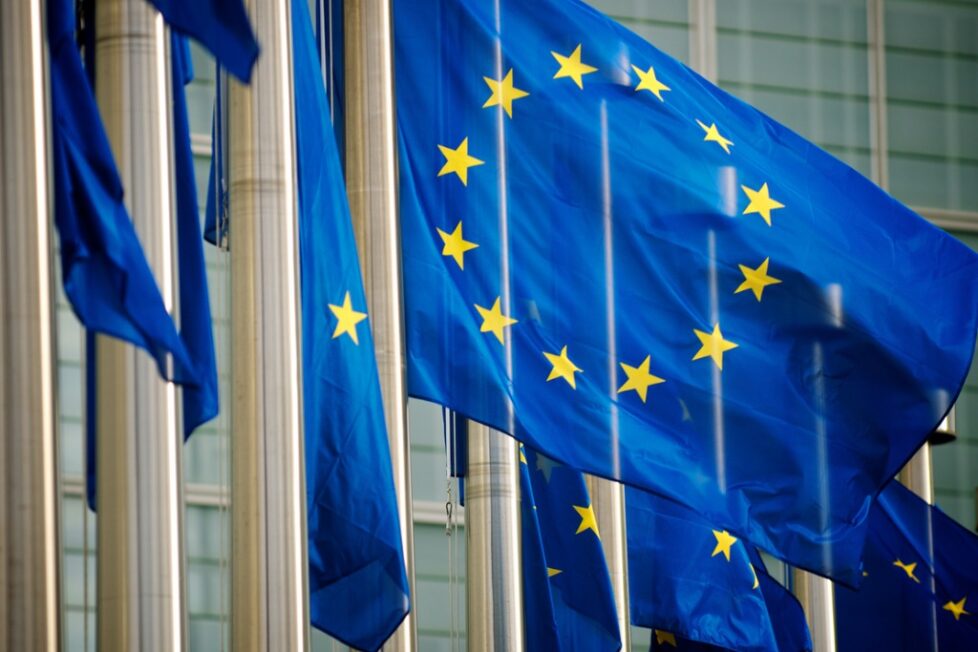EU Lawmakers Agree on New Law Requiring Companies to Address Environmental, Human Rights Impact in Value Chains


Lawmakers in the European Parliament and Council announced today that they have reached a provisional agreement on the EU’s proposed corporate sustainability due diligence directive (CSDDD), outlining rules for companies requiring large businesses to assess and address adverse human rights and environmentalEnvironmental criteria consider how a company performs as a steward of nature. More impacts in their value chains.
The agreement follows the release of a proposed CSDDD directive by the European Commission in February 2022, and sets out obligations for companies to identify, assess, prevent, mitigate, address and remedy impacts on people and planet – ranging from child labor and slavery to pollution and emissions, deforestation and damage to ecosystems – in their upstream supply chain and some downstream activities such as distribution and recycling.
Following the announcement EU Commissioner for Justice Didier Reynders said:
“Today’s agreement is a big achievement for the EU. It represents a leap forward to achieve a more sustainable and fairer economy, both from a socialSocial criteria examine how it manages relationships with employees, suppliers, customers, and the communities where it operates. More and environmentalEnvironmental criteria consider how a company performs as a steward of nature. More dimension. The new rules will ensure that responsibility and transparency are respected in value chains.”
The new rules will apply to EU companies with more than 500 employees and over €150 million in global revenues, as well as to companies with over 250 employees and €40 million revenues, with at least €20 million in revenues in key sectors related to manufacture of textiles, clothing and footwear, agriculture, mineral resources and construction.
The requirements will also apply to non-EU companies with more than €300 million net revenue generated in the EU, beginning 3 years after the directive’s entry into force.
The new directive will require affected companies to integrate due diligence on impacts into their policies and risk management systems, including descriptions of their approach, processes and code of conduct.
The agreement also requires companies to adopt climate transition plans plan ensuring that their business models and strategy are aligned with the Paris Agreement goal to limit global warming to 1.5°C.
One of the key changes to the Commission’s proposal sought by the EU Parliament’s negotiating position was the inclusion of financial service providers under the new directive, while Council’s position left the decision to include these companies up to member states. Under the negotiated agreement, the financial sector will be temporarily excluded from most of the CSDDD requirements, while a review clause will be included for a possible future inclusion of the sector.
The new rules also include requirements for companies to engage with those affected by their business activities, with obligations including the introduction of a complaints mechanism, with a 5 year period for claims by those concerned by adverse impacts, as well as communication of due diligence policies and monitoring of the policies’ effectiveness.
Additionally, the new agreed directive also sets up a system of supervision and sanctions, with member states setting up supervisory authorities to monitor compliance with the obligations, and to impose penalties including “naming and shaming,” and fines of as much as 5% of annual global revenue.
Sustainability-focused groups welcomed the agreement, but expressed concerns about the exclusion of the financial sector from the directive’s obligations. In a statement issued following the announced agreement, Isabella Ritter, EU Policy Officer at responsible investment research and campaigning NGO ShareAction, said:
“In the EU negotiation dance, we’ve scored an important win for people and planet – financial institutions, including banks, insurers, and investors, remain within the scope of the CSDDD and will now have to adopt a Paris-aligned transition plan. Yet EU negotiators have missed a resounding opportunity for more transformative change. Despite strong support from financial sector representatives and civil society, EU policymakers, due to the Council’s pressure, chose to exempt financial institutions from due diligence requirements when offering financial services to their clients. This grants financial institutions a free pass to neglect human rights and environmentalEnvironmental criteria consider how a company performs as a steward of nature. More harms.”
With the agreement in place, the CSDDD will now require formal approval by the EU Council and Parliament before entering into force.